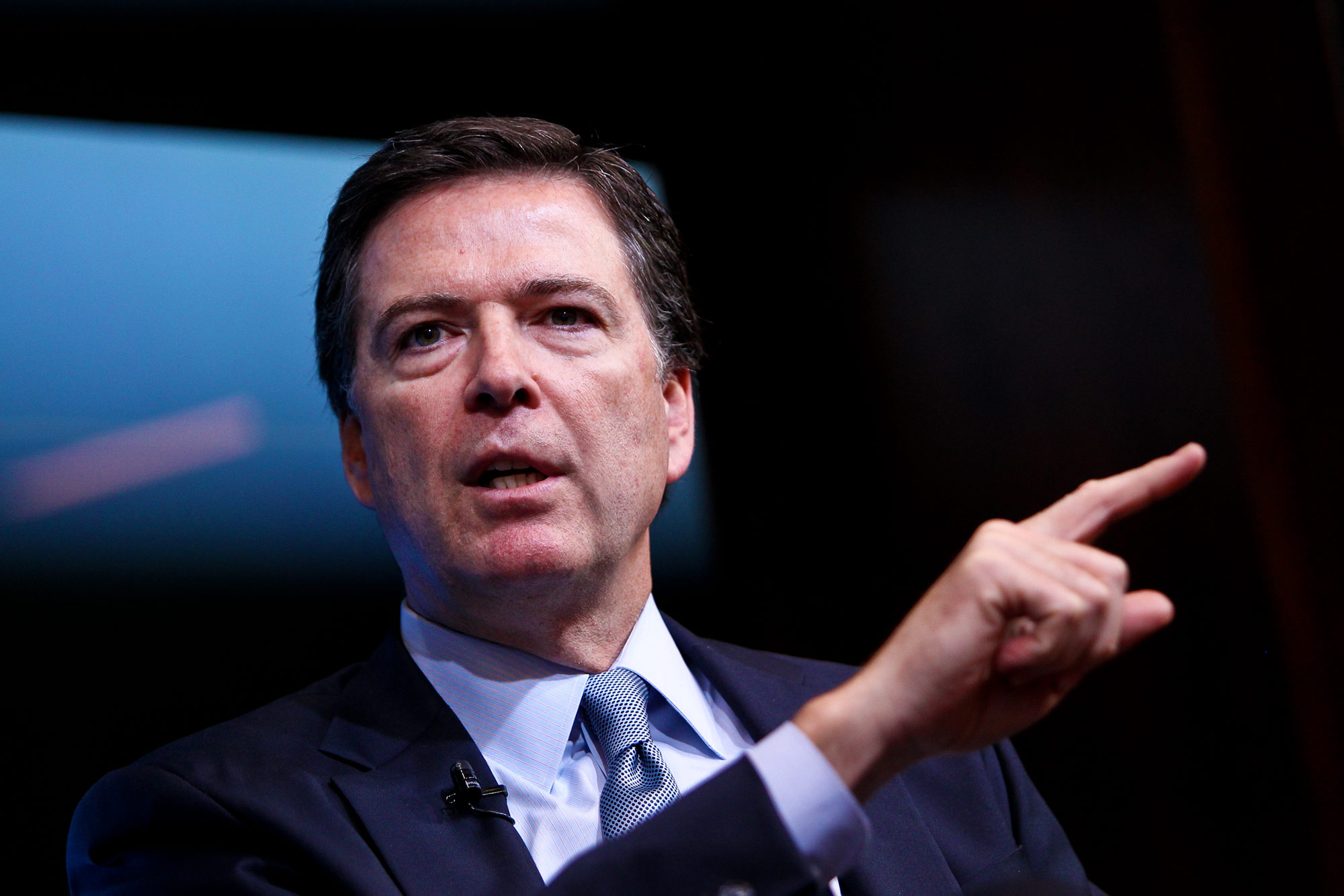With all eyes trained on Capitol Hill on Thursday, commentators are already dubbing the testimony of ousted FBI Director James Comey a “political Super Bowl.” All the major television networks will cover the hearing live, and in true D.C. fashion, a number of Washington restaurants and bars will open early to capitalize on the event with group viewings and political pun-heavy menus.
Americans received a preview of Comey’s planned testimony when his prepared remarks to the Senate Select Committee on Intelligence were made public on Wednesday, but speculation is still running rampant on just what information the former FBI chief might have to share.
Amid all the media hype and guesswork, UVA Today asked five University of Virginia experts to offer their insights on what areas Americans should pay the closest attention to on Thursday. Below, these specialists in history and politics identify the “must-see TV” moments and explain the likely historic and political impact of Comey’s words.

• Partisan Posturing: Larry Sabato, Founder and Director of the UVA Center for Politics
“The Comey testimony is must-see, but let’s remember the country is already deeply dug in and polarized about this controversial president. Trump’s backers will find ways to dismiss damaging revelations, while Trump’s opponents – far more numerous, if current polling is to be believed – will simply be confirmed in their suspicions. While partisanship is more intense now, Comey’s appearance is somewhat reminiscent of the early Watergate hearings. That doesn’t mean it’s going to end the same way.”
• Righteous Indignation: Barbara Perry, Director of Presidential Studies and White Burkett Professor of Ethics and Institutions at UVA’s Miller Center
“Look for James Comey’s fundamental character trait – rectitude – to be on full display when he testifies on Capitol Hill. As a teenager, Comey was the victim of a frightening home invasion, with the perpetrator holding him and his younger brother at gunpoint. His indignation over unlawful behavior could well stem from such a traumatic experience. He has righteously pursued justice whenever he perceived a potential violation of the law. From refusing to reauthorize a [President George W. Bush] intelligence-gathering protocol, to investigating Hillary Clinton’s e-mail, to confronting Donald Trump, Comey is steadfastly committed to the motto chiseled over the Supreme Court’s edifice: ‘Justice, the Guardian of Liberty.’”
• The ‘Showboat’ Showing: Philip Potter, Associate Professor of Politics and Director of the National Security Policy Center at the Frank Batten School of Leadership and Public Policy
“One thing to watch for is whether Comey is, in fact, a ‘showboat.’ That’s the accusation that Trump and his surrogates have leveled at him, but right now they are likely hoping that they’re wrong. Keep in mind that there are two parallel processes going on here – the political one we’ll all be watching, and the behind-the-scene legal one led by [Special Counsel Robert] Mueller. Comey is in a difficult position because he is central to both, so he has a choice to make. He can be forthcoming in his statements to Congress and open himself up to this charge of showboating, or he can resort to his law enforcement instincts and be cautious in his testimony.
“The choice could have big implications. If Comey is expansive in his statements to Congress, it’s bad for the administration in the short term, but they may be able to win a political fight over the long haul. If he throws in with the legal side of things, that will be better immediate news for Trump, but it could also be an indication that the administration is in real legal jeopardy.”
• Live Political Dueling: Russell Riley, Co-Chair of the Miller Center’s Presidential Oral History Program
“Watch the chyron [live updates on screen]. President Trump will be sorely tempted to offer real-time color commentary, surely over the objections of his lawyers. If he does so, this may be the most consequential political duel since Aaron Burr and Alexander Hamilton.”
• Obstruction of Justice: Ken Hughes, Miller Center research specialist and expert on secret presidential recordings
“The big question hanging over the hearing is whether the president committed obstruction of justice. The focus will be not just on every contact and conversation Trump had with Comey on the Russia investigation, but what Comey made of them at the time. Did he think the president was trying to influence the investigation? To protect National Security Adviser Michael Flynn? To clear his presidential campaign of suspicion? To remove a potential sore point in U.S. relations with Russia? At the same time, the former FBI director will be called on to tell the committee how he responded – what he said to the president, what he said about the president to his confidantes, why he decided to take whatever actions he did and perhaps just as important, why he didn’t take other actions. At the same time that he will be informing the committee (and hopefully all of us) about the president’s actions, Comey will have to explain his own.”
Photo at top published under Creative Commons.
Media Contact
Article Information
June 7, 2017
/content/comey-capitol-hill-uva-experts-weigh-what-watch

